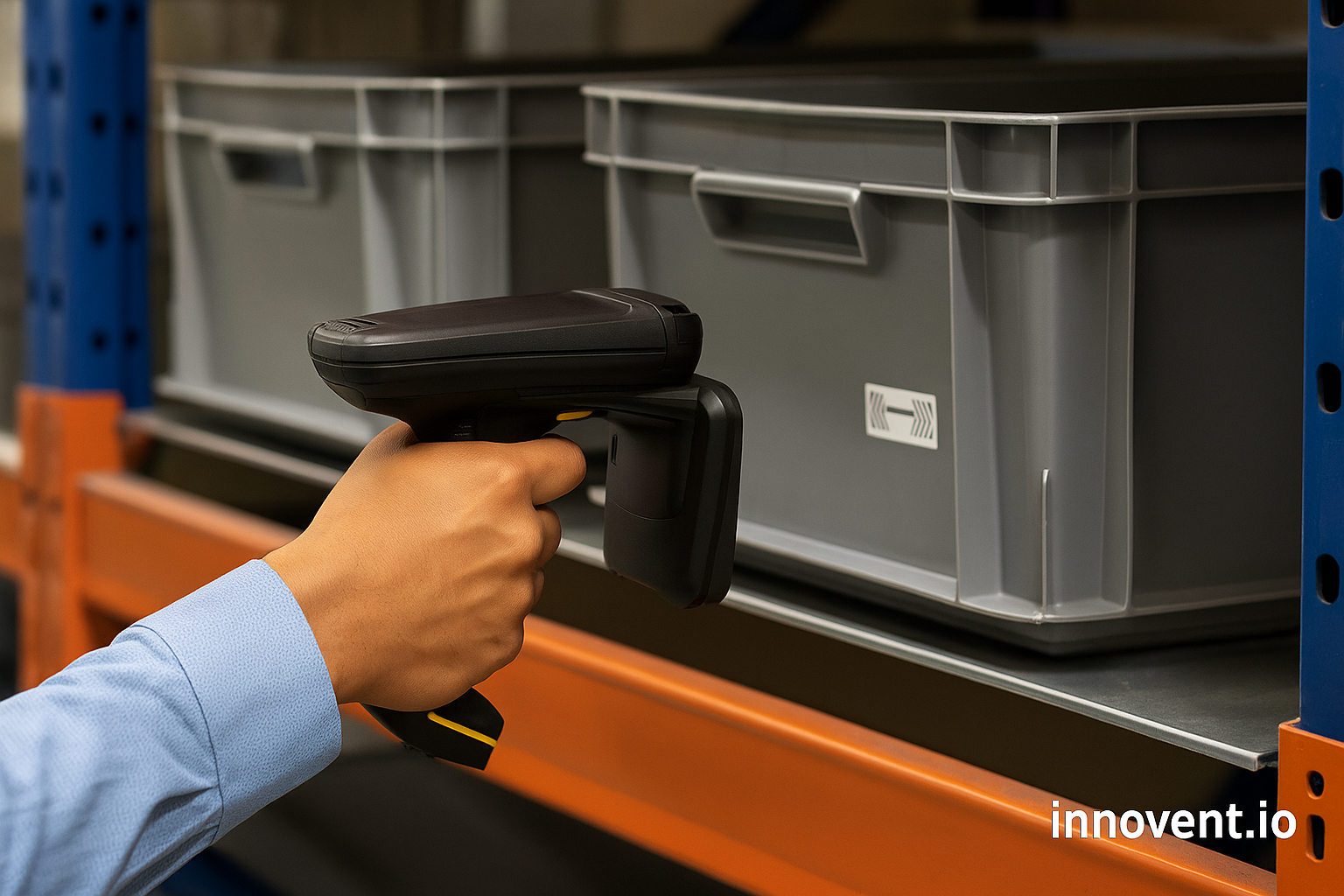RFID for Production Line Traceability in UAE Automotive
Precision is no longer a luxury in automotive manufacturing. It is a requirement. In the UAE’s growing industrial base, automotive assembly is increasingly driven by automation, real-time data, and strict quality control. One technology sits at the center of this evolution: RFID. With rising demand for electric vehicles, luxury car customization, and parts exports, manufacturers in the UAE must now guarantee full traceability across every production stage. RFID systems offer that control and visibility.
Production delays due to misplaced components or manual tracking errors can cost thousands per hour. In a market where every part must meet international quality benchmarks, a single tracking failure can cause shipment delays, recalls, or loss of brand trust. This is why UAE automotive firms are integrating RFID across their production lines - not just for compliance, but for performance and profitability.

How RFID Works on the Automotive Line
Radio Frequency Identification (RFID) uses tags and readers to track physical items without manual scanning. A passive RFID tag, once applied to a part, gets powered by the signal from a reader. That tag carries a unique code that matches it to an item in the system.
In automotive plants, tags are applied to major components such as chassis frames, engine blocks, or interior modules. Fixed RFID readers are placed along the production line at stages like welding, painting, final assembly, and quality control. Every time a tagged part passes a reader, the system logs the time and location.
The result is a real-time record of each part’s journey - from the warehouse to the moment it becomes part of a finished car. If anything goes missing or is delayed, the system immediately pinpoints its last location.
Use Cases Inside UAE Plants
In Jebel Ali and Abu Dhabi industrial zones, car assembly plants and auto-parts suppliers handle hundreds of vehicle units weekly. Each vehicle has thousands of parts. Without RFID, workers must rely on barcodes or manual tracking, which can be slow or error-prone. When parts are handled by different teams across several stages, even one mistake can hold up a line.
With RFID, these facilities now track containers, trays, and pallets automatically. This helps in ensuring correct part sequencing, especially for just-in-time operations. Quality checks become faster and more accurate. Defective parts can be pulled from the line before causing problems further downstream.
Benefits in Speed and Cost
RFID significantly reduces time spent on audits, inspections, and inventory checks. A process that once took several hours now takes minutes. Parts arrive at the right station, at the right time, reducing idle time between assembly phases.
Studies show that factories using RFID experience up to 99.8 percent accuracy in inventory data. Defect rates drop because mismatched or wrongly sequenced parts are caught early. Rework and repair costs decline. Delivery schedules become more predictable.
For UAE-based manufacturers working with international partners, RFID also supports compliance with global supply chain requirements. Automotive giants require suppliers to maintain part traceability as part of their contract terms.
RFID and Supply Chain Integration
RFID is not limited to the production line. When connected to supply chain systems, it gives full visibility from supplier to warehouse to assembly. This end-to-end tracking allows UAE plants to reduce inventory holding costs and avoid overstocking.
For example, an engine control module tagged with RFID can be tracked from its origin in Germany to the Dubai port and then into the factory line. At each step, the system updates its location, which reduces lost shipments and improves planning.
Real Numbers Behind the ROI
Data from international deployments show the impact. RFID adoption in automotive production has cut inventory errors by 20 percent, reduced labor costs by 10 percent, and improved product traceability by over 99 percent. Some suppliers reported a 14 percent reduction in rework within the first year of use.
One automotive parts plant cut annual waste by over 15 percent simply by detecting misplaced components before final assembly. These savings are not theoretical—they are already being realized in RFID-powered operations.
Implementing RFID in the UAE
For UAE manufacturers considering RFID, the first step is site assessment. This includes identifying bottlenecks, critical stations, and areas with frequent tracking errors. After that, manufacturers can choose tags designed for metal surfaces or high-heat areas, depending on their needs.
A phased rollout works best. Start with tagging high-value or hard-to-replace components. Use fixed readers at key stations. Gradually expand to cover full line traceability. Integration with ERP or MES platforms ensures that data flows into planning and reporting systems.
Leading RFID solution providers in the UAE offer installation, training, and system support. Many also offer cloud-based dashboards that provide production insights in real time.
Competitive Advantage for UAE Industry
As the UAE expands its role in electric vehicle assembly, parts exports, and industrial automation, traceability will define who leads. RFID offers not just better tracking, but a real strategic edge. It builds accountability into every step of the production line.
Factories that use RFID have fewer errors, lower costs, and faster turnaround. That is exactly what the UAE’s automotive sector needs as it aims to match and exceed global standards.
Sources
https://rfid.averydennison.com/en/home/news-insights/case-studies/rfid-case-study-automotive-achieving-traceability-excellence-yazakis-journey-to-over-99-percent-accuracy.html
https://www.getfactorysense.com/resources/the-benefits-of-using-rfid-technology-in-the-manufacturing-industry-a-data-driven-perspective
https://www.trace-id.com/en/rfid-technology-in-the-automotive-industry/
https://rfid4u.com/tracking-automotive-parts-with-rfid/
https://www.rfidjournal.com/expert-views/automakers-seek-fast-roi-from-rfid/
https://www.dtbrfid.com/how-rfid-technology-can-benefit-automakers/









